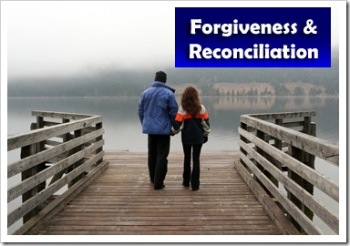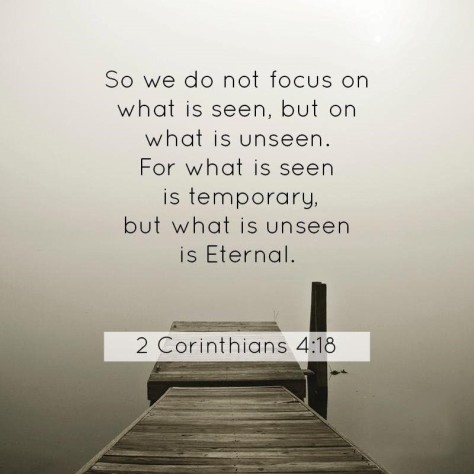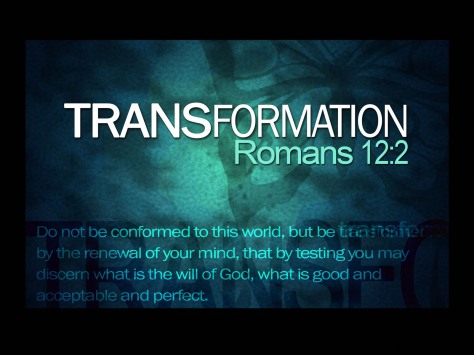 What should you do when personal relationships are fractured by someone’s behavior who repeatedly violates your trust and causes deep regret? A person who you have given your heart and confidence to in a meaningful relationship who has now violated that confidence.
What should you do when personal relationships are fractured by someone’s behavior who repeatedly violates your trust and causes deep regret? A person who you have given your heart and confidence to in a meaningful relationship who has now violated that confidence.
Once you begin to pay attention to one of those situations, you begin to understand the way people who you care about who do you wrong, violate your personal boundaries, and have patterns of behavior that consume your life resources emotionally, physically, and financially.
To ask, what should be done next is a reasonable response from the injured party. The answers are not always easy to resolve everyone equally depending on their circumstances, but something must be done. Some people just opt to run away putting as much physical or emotional distance between them and the offender as possible to avoid the consequences. However sane that may seem at the moment, running away is not always a reasonable response when we have been hurt by others and trust has been compromised.
Quite often the best response is to try to manage relationships instead of running away. However, when efforts are made to manage others behavior, those efforts to help others can be a slippery slope that can backfire if you do not think through the way you feel and how you will manage you own actions. One thing to realize is that every time there is a hurt or violation, there are two people involved. It is like the old saying, “it takes two to Tango”.
Obviously, the act of assessing blame and trying to get others to take responsibility for seemingly unjust or unethical behavior can turn on the accuser because of the distorted emotions, perception, and self-interest other people may have about events. In fact, most people always will judge their own actions in the best light. So, for most people, it is easier to blame others or make actions appear to be about someone else instead of accepting responsibility for personal actions or participation in a conflict situation that has produced hurtful actions, negative feelings, and a fractured outcome.
Looking at forgiveness from a purely religious or theological perspective sometimes leaves people with distorted ideas about responsibility for actions. When behavior occurs that violate another person’s rights or actions that defrauds another person willfully of benefit.
Many people think that if you are a Christian and you are wronged that you are obligated to get “holy amnesia” instantly. Then, if you are really a spiritual saint that you will act as if nothing ever happened. Unfortunately, when some people look at the idea of forgiveness through a theological construction, often the emphasis is placed upon unconditional forgiveness without balancing actions with personal accountability for actions that wrong others.
In fact, unconditional forgiveness, ideally, removes responsibility for actions, absolves guilt, removes consequences, and automatically restores relationships. Unfortunately, in the real world of human experience that is seldom the reality in experience. Something important to think about is that within the the subject of forgiveness an important issue to consider is that human beings are cognitive and emotional beings. They are humans that are subject to human limitations and they are not impeccable altruistic beings as God.
Sadly, many people who have been deeply hurt by others are further damaged by guilt and manipulation of religious idealists who do not comprehend that there is more to forgiveness than holy amnesia. In view of humanity, when it comes to forgiveness many people falsely impose the content f redemption and forgiveness provided through Christ God upon human relationships as if it is normal or expected for people to behave just as God has while living with the limitations of a finite human being.
Unfortunately, for many people feeling the hurt and pain of broken relationships the pain doesn’t get any relief when religious notions are used to guilt and bruise the offended further. Think about this: from a Christian perspective, if the central emphasis of forgiveness is placed upon benefit for the sinner, relief for the offender, instead of responsibility for the effects of behavior that have damaged parties in a relationship, then who pays for the offense in the relationship?
The answer is clear –a distorted understanding about forgiveness and responsibility re-victimizes the offended by placing the Lion’s share of consequences upon the person wronged. Obviously, forgiveness is distorted when cause and effect are not kept in balance. There is no doubt that there can be little growth in relationships that is possible without a healthy process that addresses the consequences for the act of offense.
If a simplistic view of forgiveness is used, there is a need for immediate relief from any sense of guilt from actions. This view requires vindication, i.e., relief from emotional, social, and, personal responsibility for wrongdoing immediately. In a theological understanding of God’s provision of redemption, penalty is removed and sinners escape eternal separation from God, as well as, the benefit of relationship in the present because Jesus bore the sin and consequences. However, the theological definition is not a very practical way to apply to how forgiveness occurs between people who are the product of a fallen nature and experience systemic relational problems.
Obviously, iIndividuals with a human limitations often lack a God-like ability to negotiate healthy balance between forgiveness and responsibility. Therefore, when many people think of forgiveness they are equating it with to the doctrine of absolution from Roman Catholic Theology, where the priest mystically removed the penalty for wrong acts. As a result, movement away from a simplistic view of forgiveness by people who live by shoulds and should nots will be enhanced when they realize that forgiveness is both an act of the will and a process toward reconciliation that is not just a instant “holy amnesia”.
One way to think about this subject is that there remains a fundamental difference between forgiveness and removal of cumulative consequences. In view of that, it is true that Jesus died on the Cross-as a substitution for the sins of those who place faith in Him. However, does that mean that all of the consequence for every sin and sins are removed at the Cross in every area of life? Some people believe the answer is yes, but the answer is an emphatic no.
To illustrate this point, the thief on the cross still died for his crimes, while at the same time he was forgiven of his sins. Indeed, there is a principle that needs to be understood about consequences in the human life that remain, even when there is full forgiveness. Something to consider is that many people see forgiveness as a relief from responsibility for irresponsible behavior. Obviously, escapist thinking under girds many beliefs people have about forgiveness from bad behavior.
One place this is evident is in the majority of prayers prayed by people that focus upon God relieving or delivering them from consequences in life instead of focusing upon personal change in the person. It seems rational to believe that the focus should be upon God providing ability to bear up under consequences while remaining faithful through circumstances. Somehow people have come to believe that when they are forgiven of wrongdoing they will no longer have to live under the conditions that bring consequences from choices made or to face responsibility for consequences.
Unfortunately, the fact remains that unethical and unjust behavior influence levels of trust, communication, and relationship dynamics that, in turn, affect everything in life.
There is no doubt that common sense tells us that when something horrendous occurs to a person emotionally, psychologically, or personally devastates life, it will not be relieved with a simple “I’m sorry”. In fact, something is seriously out of balance with thinking about forgiveness that equates words of contrition or acting like something did not happen with relief from consequences and responsibility. Obviously, it is like believing the words, “I am sorry” will remap the cells of brain, change thought patterns, modify behaviors in way that minimizes, erases responsibility and eradicates consequences.
Consider the error of this point of view that is so prevalent among the religious through an attitude that places greater emphasis upon acceptance of wrongdoers than it does upon the spiritual, social, and eternal consequences of evil acts. Obviously, all actions have consequences and no matter how much individuals may want to ignore them, pretend they don’t exist, or mystically wish them away, there is always an ongoing impact on life. Consequently, what can be learned from church history is the point of view that minimizes responsibility from wrongdoing is nothing new, it is called, Antinomianism.
This perspective presented a problem recorded in the book of Roman where Paul asked a question directed at responsibility for actions, “What shall we say then, shall we continue in sin that grace may abound”. Consequently, rational people know that when there are evil acts, there is not a freedom from responsibility, but a challenge to accept responsibility mandating a change in behavior in a responsible manner.
Apparently, some people in that time believed that the more they sinned, the more grace was magnified as a principle of forgiveness and acceptance —more grace is evident and available. Unfortunately, this is how many people view responsibility for their wrongdoing: the more they are forgiven, the less sensitivity that is felt about the grave nature of injustice to others. For example, among incarcerated inmates this is particularly evident in the way felons passionately rationalize crimes against others when they find Jesus. The point that is relative is that there is a felt need for relief through redemption and absolution from penalty in forgiveness.
However, something that is characteristic among anti-social types is a visible absence of remorse, acts of willing restitution, or change of attitude about crimes committed against victims. Those who are most passionate about forgiveness and who advocate acceptance, restoration, and vindication are those who have the greatest guilt and sin and want relief from consequences.
What needs to be understood is that Jesus died on the Cross for Sin to give a remedy for sins. Sin is a legal term expressed in John 3:17 as condemned and in Romans 8:1, as condemnation, which has reference to eternal punishment and separation from God as a legal consequence of sin. The forgiveness that Jesus offers in His work on the Cross is declared to provide a way to experience a changed life that is a process in contrast to an escape from the consequences of sinful actions. In the theological concept, forgiveness is about changing behavior and redeeming the consequences through building a life of trust and faith through fidelity. On the other hand, naive acceptance without accountability reinforces the potential for evil to continue thrive and prosper.
One of the problems with beliefs about forgiveness is that it is philosophically bound to utilitarian reasoning about forgiveness grounded in hedonism. Hedonism is the the pleasure principle, which advocates that the greatest good outcome in life is achieved on the least path of resistance resulting in relief or pleasure. In other words, the way that brings the greatest pleasure in life is the easiest way. Utilitarian’s advocate the principle of greatest good and is the best outcome for everyone concerned.
However, the question remains unanswered about how is the greatest good or best is determined? Usually the good is in human terms arrives socially, from group input, or from sociocultural norms and mores’, not from a universal or rational truth. Unfortunately, Utilitarian forgiveness is not very effective at helping people change behaviors or protecting people from harm, and restoring trust.
In this case, forgiveness magnifies the principle of toleration and means that there is no universal understanding of consequences or for morally wrong behaviors. Therefore, illegal activities and damaging behaviors deconstructs normal boundaries for behavioral expectations and normal expectations about responsibility.
Therefore, the impact upon the human experience is that when people become so desensitized to consequences of evil that the effect is no longer felt, the result manifests an inadequate view of forgiveness and responsibility. Therefore, when people hold a fundamental belief that there is forgiveness for sin and with no consequences, spiritual change or personal growth does not occur in relation to forgiveness. The opposite occurs: behavior adapts to wrongdoing creating no accountability and the system dynamic turns the abnormal into the normal. Consequently, forgiveness should demonstrate change in the forgiven not reinforce a potential to act in evil ways without accountability. Consequently, forgiveness should mean that, offenders are changing how they feel and how they believe, so life can move forward in a healthy productive way.
A cultural challenge to forgiveness in the 21st century is within the proliferation of Utilitarian thought. At its core there is never really any possibility of right or wrong so there can be no offense. Obviously, this belief is connected to a relativistic view of culture that removes all moral implications of sin or wrongdoing and removes absolutes. As a result, a conclusion might be made that since nothing is really ever wrong, forgiveness is just a psychological transaction where feelings are purged creating emotional catharsis and acceptance. However novel that may seem to modern people, this thinking does little for the person who has been violated and who has memories encoded with trauma after an experience creating Post-Traumatic Stress.
Forgiveness is an internal process that sets the forgiving person free from bitterness and internalizing of pain in self-destructive ways. However, contrary to popular thought, forgiveness does not mean the offender is free from the consequences of their actions. When the news reported that Usama bin Laden was killed, there was a sober reminder that evil actions have consequences that will stalk a person and exact a penalty sooner or later through consequence in life and after death. Obviously, we live in a time when universal truth has been rejected and been replaced with a view that makes all actions relative to the person. Consequently, the reality of 21st century sophistry is no moral right and wrong, but only what is relative to a person or a group.
Another way to consider responsibility for actions is presented in Psalm 37 that says, ”Fret not thyself because of evildoers, neither be thou envious against the workers of iniquity. For they shall soon be cut down like the grass, and wither as the green herb”. Indeed, the certainty of the future is that every person will fall into the hands of a just God, who has reminded us that there are consequence for evil acts and violence. With that in mind, the message that resounds for victims is that the pain felt through unjust acts in this life is only a token of the eternal reward for injustice from evil acts in this life. Something to think about is that God will have the last word on every act and consequence of evil behavior.


























 Last week I spent a couple of days attending the
Last week I spent a couple of days attending the 
















You must be logged in to post a comment.